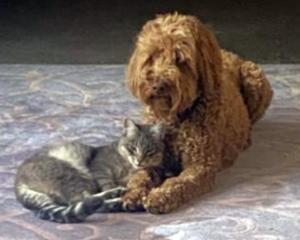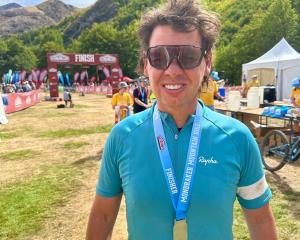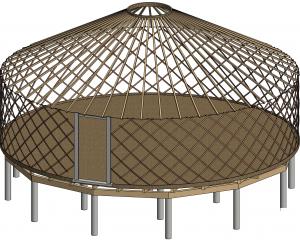Pioneers of the heli-skiing industry are celebrating three decades in the business. One of them - Queenstown-based ski guide, Ian Wilkins - talks to Jessica Maddock about the thrill of being the first skier down slopes in the Southern Alps.
Does flying a helicopter to the top of Mt Nicholas, skiing down and relaxing with a beer on the Earnslaw steamship on your way back to Queenstown sound like a tough day at the office?
That was ''bread and butter for many years'' for one of the heli-skiing industry's founding companies, guide Ian Wilkins said.
Southern Lakes Heli-ski has just celebrated 30 years in the business. It was the country's second heli-skiing firm, preceded by only a couple of years by Queenstown Heli-ski, which is now called Harris Mountain Heli-ski.
Mr Wilkins joined Southern Lakes Heli-ski in 1986, a year after it was set up by Queenstown businessman John Darby and mountaineer Kim Logan, now of Cromwell, in competition with Queenstown Heli-ski, the pioneering firm of Don Spary, also of Queenstown, and Wanaka entrepreneur Sir Tim Wallis.
It was diversification for Sir Tim's helicopter business, Mr Wilkins said, when the live deer recovery industry started to wane.
Queenstown Heli-ski skied Coronet Peak and what would become The Remarkables ski areas, while Southern Lakes Heli-ski had access to the Mt Nicholas and Rees Valley stations, using well-known pilots Sir Richard ''Hannibal'' Hayes and Dave Kershaw.
''There were a lot of very good helicopter pilots in those days, incredibly good mountain pilots ... those guys tended to have a different approach to things, seeking adventure, dragging people into the back-country and going skiing,'' Mr Wilkins said.
''There were no cowboys though, no risk-taking. I think they were even more risk-averse than today.''
When described as adventure tourism pioneers, Mr Wilkins said: ''We didn't realise it at the time.
''We always looked forward to skiing new places. You can't do that now because it has all been done. Every slope in the Southern Alps has had skiers down it.''
To assess avalanche risk, they were trained by ''guru'' Dave McNulty, a Cantabrian who guided on Mt Cook.
''He was a very forward thinker and world class when it came to avalanche education. He set very good standards, modelled around Canadian systems,'' said Mr Wilkins, who went on to avalanche forecasting for the Milford Sound road before returning to guiding.
Mr Wilkins said today's helicopters were much better suited to mountain flying - more powerful and with more ''margin for error'' - than the JetRangers used in the early days.
Ski equipment had also changed dramatically, with the modern ''powder'' or ''fat'' skis making back-country skiing on off-piste, ungroomed snow much easier for less experienced skiers.
''With the old skinny skis, you had to be much more skilled off-piste,'' he said.
In those days, Southern Lakes Heli-ski attracted up to 600 clients a year, most of them from Japan thanks to its Japanese guide Isuyoshi ''Itchy'' Ichimura, who is still involved in the company.
Its clientele has now doubled, with Australians making up half and New Zealanders, North Americans and Europeans the balance, plus a few Japanese and a growing Chinese market. Now, half of them are also snowboarders.
Today the company is half-owned by Wanaka businessman Julian Field, Mr Wilkins and Mr Ichimura, with the rest recently bought by the Wallis family's Alpine Group.
The company markets itself on having more terrain than other heli-skiing operators, with access to about 9000sq km of land up to 2500m above sea level, much of it in Mt Aspiring National Park, Mr Field said.
''It means if the weather or snow is no good in the south or west, we have terrain in the east or north. There's more chance of getting out on any given day and finding the good stuff.''
Mr Field said the Alpine Group was the perfect strategic partner. The agreement meant Southern Lakes Heli-ski had first dibs on access to the Wallis family's Minaret Station and its helicopters, and the Alpine Group had established tourism links.










